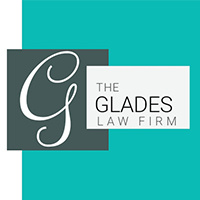Powell Divorce & Family Law Lawyer, Missouri
Phillip Alan Glades
✓ VERIFIEDAccident & Injury, Divorce & Family Law, Criminal
Our experienced legal staff is dedicated to helping you with the following legal matters: Family Law Criminal Defense Personal Injury
John Cowherd
✓ VERIFIEDAccident & Injury, Workers' Compensation, Adoption, Car Accident
John grew up on a dairy farm in Barry County, Missouri, and was the 6th of 7 children (of the 7 children, 4 became lawyers). After graduating from Cas... (more)
FREE CONSULTATION
CONTACTWilliam G. Weber
Divorce & Family Law, Personal Injury, Estate, Criminal, Real Estate
Status: In Good Standing Licensed: 19 Years
Jennifer Faye Wattman
Estate Planning, Workers' Compensation, Family Law, Personal Injury
Status: In Good Standing
Frank Ross Gipson
Traffic, Family Law, Corporate, Personal Injury
Status: In Good Standing Licensed: 9 Years



